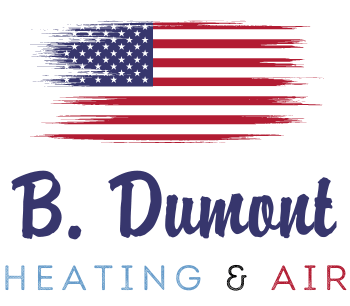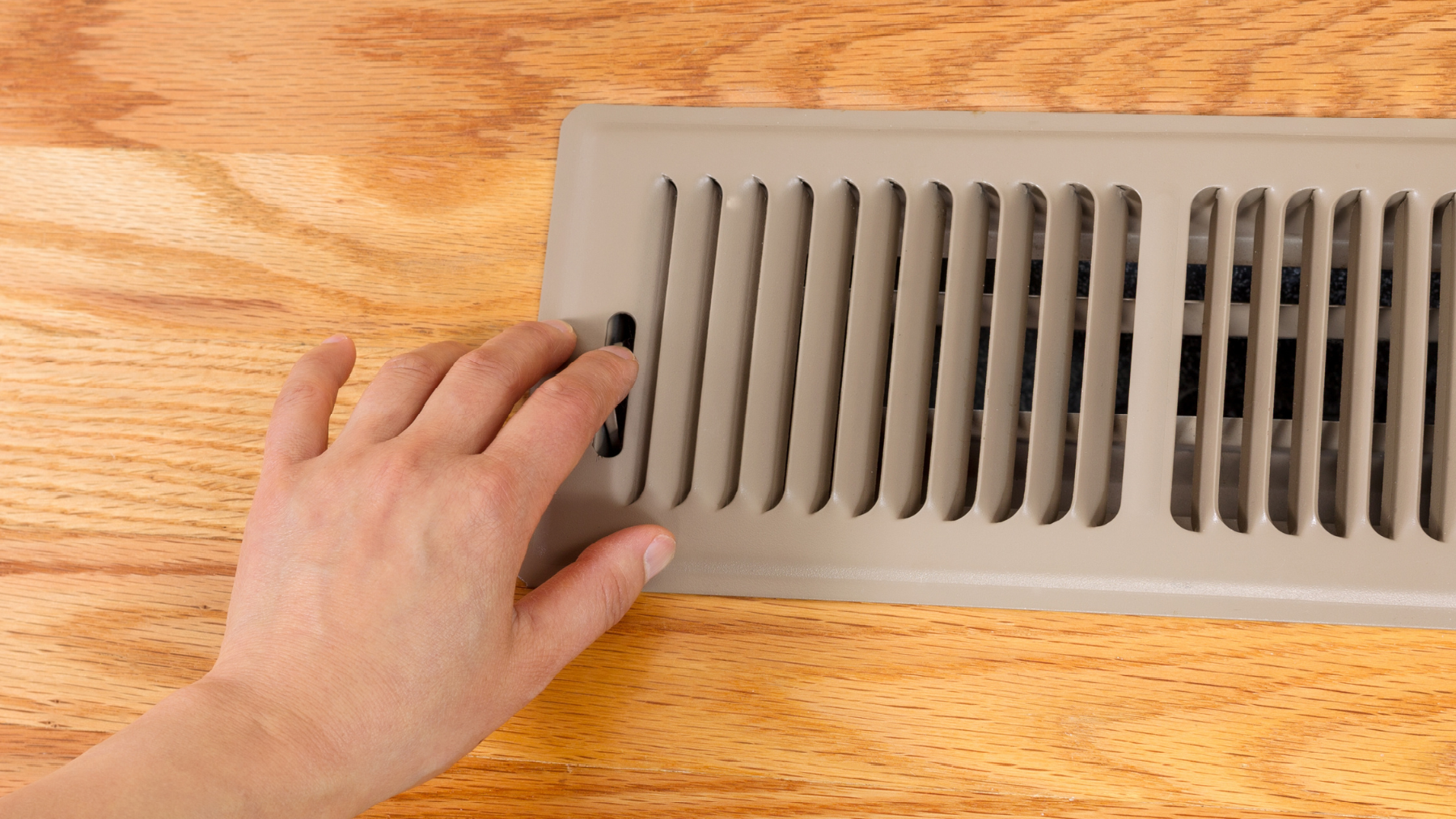HVAC Insights & More
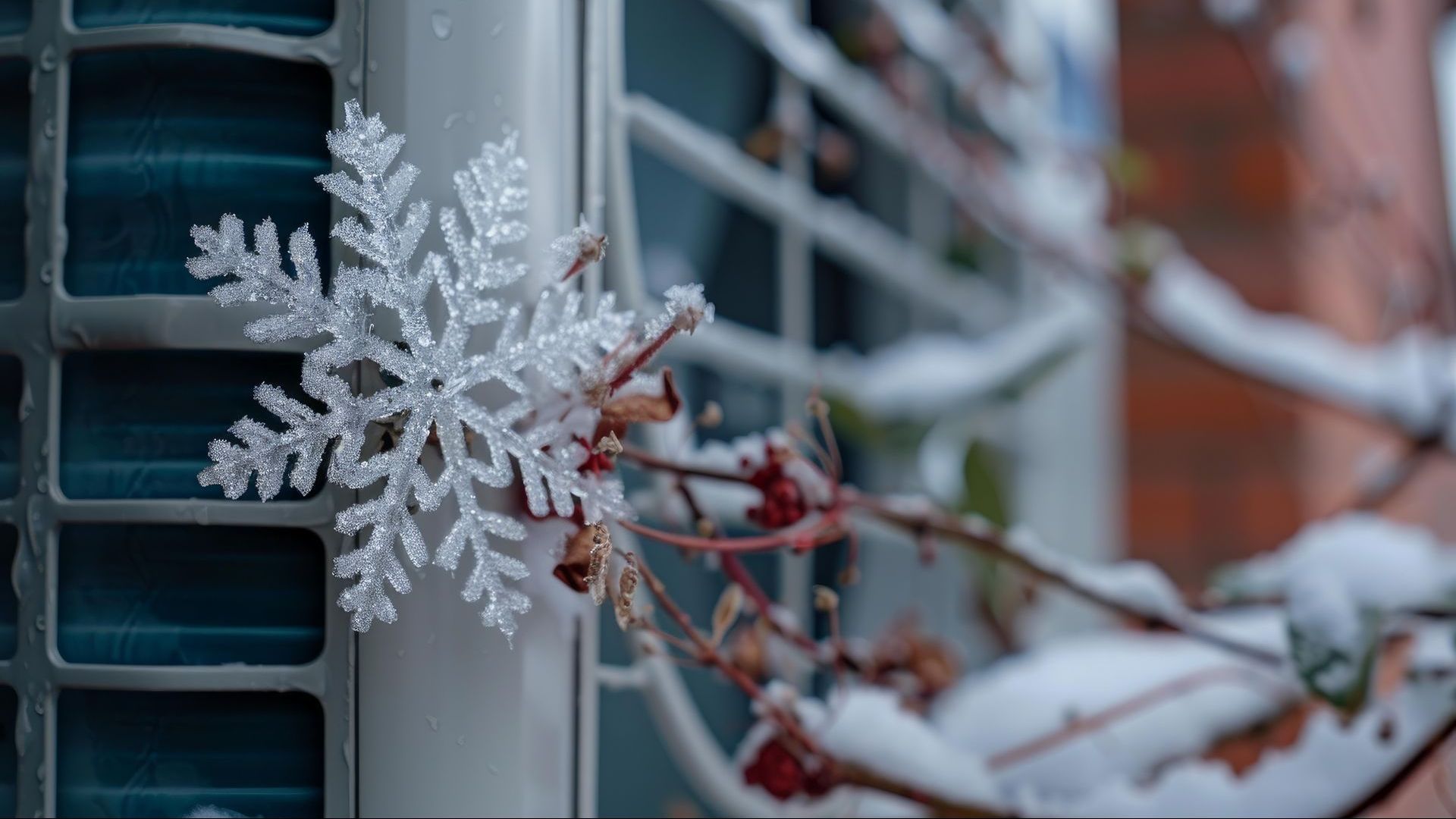
With freezing temperatures in the forecast and stormy winter weather on the horizon, it's essential to know how to care for your HVAC unit during snow and ice conditions. While most units are designed to endure harsh winter weather, being mindful of a few key factors can help prevent a mid-winter breakdown. Ensure Your Unit Isn’t Buried Under Snow A unit buried under snow can lead to various problems. Your HVAC system requires airflow to function effectively, and excessive snow coverage can restrict this airflow. If you find your unit covered in snow, carefully clear it away to avoid damaging the unit or the internal fans. As a general rule, maintain at least 18 inches of clear space around the unit year-round. If there is ice on top, gently break it away by hand. Avoid pouring warm water on the ice to melt it, as any water that seeps inside can refreeze, potentially causing more damage. Check That Your Furnace Exhaust Isn’t Blocked For those with gas furnaces, it's crucial to ensure that the exhaust vent is not obstructed. A blocked exhaust can cause your furnace to stop working and may even lead to dangerous carbon monoxide leaks into your home. Snow or ice can often block this exhaust pipe. If your furnace begins to behave unusually, contact a professional to diagnose the issue before it escalates into a larger problem. Additionally, for gas furnace owners, remember to check your fire and carbon monoxide alarms as part of your winter HVAC maintenance. It’s always better to be safe than sorry. Inspect Your Air Filter Regularly checking your air filters is essential. During the coldest months, your HVAC unit operates more frequently, pulling in increased amounts of air through the filter. This results in more dust, dirt, and debris accumulating, making regular filter checks and replacements even more critical. Keep Your Unit Clear of Melting Snow and Ice Be mindful of gutters or water runoff that may drip onto or into your HVAC unit. In freezing temperatures, this can create a significant risk for your system. The real concern is not that the snow or ice from above is dripping, but rather the drips that may enter the unit and then refreeze. While HVAC units are built to withstand winter weather, ice forming inside the unit can lead to problems that might eventually result in a system breakdown. Taking proactive steps to care for your HVAC system during icy weather is crucial for ensuring its efficiency and longevity. Regular maintenance can prevent minor issues from escalating into major problems that may require costly repairs. By keeping your unit clear of snow and ice, checking exhaust vents, inspecting air filters, and monitoring the surrounding environment, you can help your HVAC system operate smoothly throughout the winter months. Remember, it's always wise to enlist the help of a professional if you're uncertain about any maintenance tasks or if you notice any irregularities in your HVAC system's performance. Doing so can provide peace of mind and ensure that your home remains warm and comfortable, even during the harshest winter conditions. Trust B. Dumont Heating and Air for all of your winter maintenance and repairs.
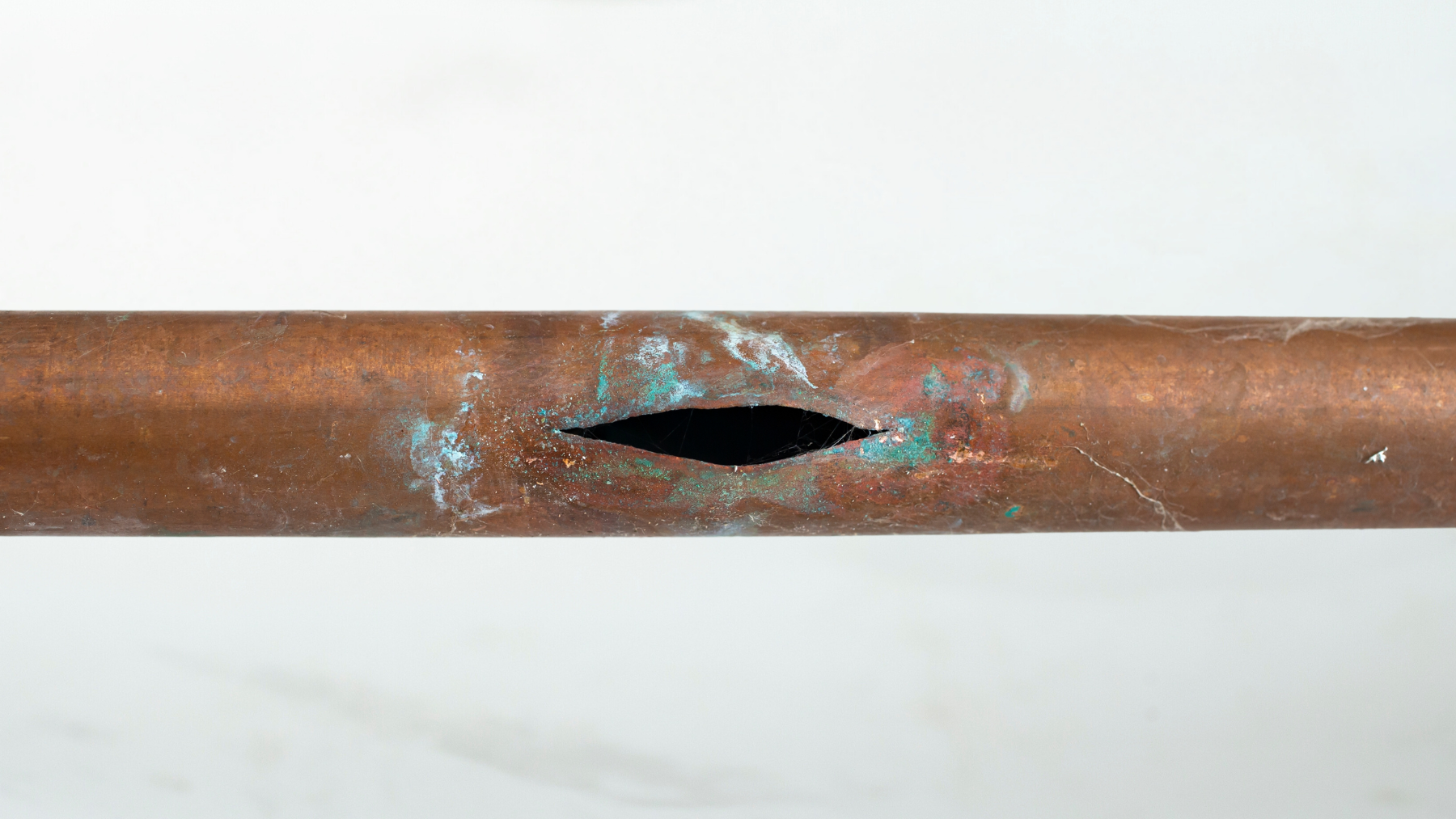
As we enter the chill of winter, it’s essential to check that your heating system is functioning effectively. Not only does this provide warmth for your home or business, but it also helps shield your pipes from freezing. Managing Frozen Pipes and Safeguarding Your HVAC System During Winter In the colder months, one frequent issue homeowners encounter is pipes freezing. While the potential damage to plumbing is often top of mind, the implications for your HVAC system are sometimes overlooked. When pipes freeze or burst, they can cause water leaks, obstruct airflow, and lead to costly repairs to your heating system. Fortunately, taking proactive measures can help you avoid these complications before they arise. Why Frozen Pipes Are a Concern for Your HVAC System Frozen pipes can disrupt your HVAC system in various ways. When water freezes inside the pipes, it can create blockages or even lead to bursts, resulting in leaks that can harm your furnace or air handler. Additionally, some HVAC systems function on a closed-loop principle involving water or refrigerant, meaning that any plumbing complications might hinder your system’s performance and efficiency. Strategies to Prevent Pipe Freezing in Your Home To keep your pipes and HVAC system safe during winter, consider the following preventive actions: Insulate Exposed Pipes: Pipes situated in unheated spaces like basements, attics, or crawlspaces are more susceptible to freezing. Use insulation to help maintain a consistent temperature around them. Keep the Heat Running: If you plan to be away from home for any length of time, set your thermostat to a minimum of 55°F to prevent drastic indoor temperature drops that could lead to frozen pipes. Open Under-Sink Cabinets: On particularly cold nights, open the cabinet doors beneath sinks, especially in kitchens and bathrooms that are located against exterior walls. This allows warmer air from the room to circulate around the pipes, lowering the risk of freezing. Drip Your Faucets: In areas prone to freezing, allowing a slight drip from a faucet can help keep the water flowing through the pipes, reducing the likelihood of freezing. Seal Cracks Around Windows and Doors: Cold air can infiltrate through gaps and cracks, chilling your living space and plumbing. Sealing these openings helps maintain a stable indoor temperature and relieves pressure on your HVAC system. Steps to Take if Your Pipes Freeze If you suspect your pipes have frozen, stay calm and take the following actions: Shut Off the Water Supply: If you notice reduced water pressure or strange sounds, immediately turn off the main water supply to prevent further damage. Apply Heat with Care: Use a hairdryer or space heater to gently warm the frozen pipes. Start from the faucet and gradually move toward the frozen section. Contact a Professional: If you’re unable to safely thaw pipes or observe any cracks, it’s wise to call a professional plumber or HVAC technician, if the frozen area if affecting your HVAC system, right away. They can diagnose the issue and ensure your system is back in working order. B. Dumont Heating and Air is here to help you with any heating related issues this winter! Don't hesitate to reach out to our team to schedule inspection, maintenance, or repairs today.

As temperatures drop, ensuring your home heating units are functioning properly is crucial for your comfort and peace of mind. At B. Dumont Heating and Air, we understand that heating issues can be frustrating and inconvenient. That’s why we’ve compiled a list of the most common heating problems homeowners face, along with helpful troubleshooting tips to assist you. If you ever require professional HVAC help, our skilled team is just a call away. 1. Dirty Filter A dirty air filter can severely restrict airflow, leading to overheating or even a complete shutdown of your heating system. To prevent this, make it a habit to clean or replace your air filters every 1-3 months as part of your ac and heating maintenance routine. 2. Dirty Ductwork Over time, ductwork can accumulate dust and debris, which can be dispersed throughout your home when the heating system is in operation. Cleaning your ducts can enhance air quality. You can attempt to clean them yourself with the right knowledge or enlist the help of a professional to ensure the job is done effectively. 3. Pilot Light and Ignition Issues If your home heating units are not producing heat, the pilot light or ignition system may be the culprit. Check to ensure the gas supply is on and that the ignitor is functioning properly. If you’re unsure or if issues persist, seeking professional HVAC help is recommended. 4. Thermostat Malfunction The thermostat is the brain of your heating system. If it malfunctions, your entire system could be affected. Verify that the thermostat is properly set and that the batteries are functioning. If initial troubleshooting doesn’t resolve the issue, it might be time to call a technician. 5. Tripped Breaker or Blown Fuses If your heating system appears to have no power, inspect your breaker box for tripped breakers or blown fuses. This may indicate that your system has been overworked, potentially due to a clogged filter. After replacing the filter, if the issue remains, a professional can provide further diagnostics. 6. Water Leaks from the Unit Condensation can lead to water leaks if the drain lines become clogged. You might be able to clear the lines by pouring a mixture of bleach and water down the drain. For persistent leaks, contact a professional to get the situation resolved. 7. Uneven Room Temperature When some rooms in your home are warmer than others, it may be a sign that your ductwork needs adjusting or that there’s an issue with airflow. A thorough inspection from one of our technicians can help identify the underlying cause. 8. Cool Air Instead of Heat If your heating system is blowing cool air, first check the thermostat settings to ensure it’s set to "auto" instead of "fan." Next, inspect the air filters and pilot light. Should the issue continue, it’s best to reach out to an HVAC professional for assistance. 9. Burning Smell When your heating system is first activated for the season, a slight burning odor can be normal. However, if that smell persists for longer than a couple of hours, it could indicate a clogged air filter or a more serious issue. It’s advisable to turn off your system and call a professional if the smell continues. 10. Frequent or Over Cycling If your heating system frequently turns on and off, examine the thermostat settings. This issue could stem from a thermostat set too high or low or from a dirty filter. If these adjustments don’t resolve the problem, a technician can help identify and fix the issue. 11. Rattling or Pinging Noises Strange noises, like rattling or pinging, can occur due to ductwork expanding or contracting with temperature changes. It might also indicate loose panels that need tightening. If the sounds persist, don’t hesitate to reach out to a professional for an inspection. 12. High Humidity Excessive humidity can cause significant problems, leading to mold growth and damage. This may result from inadequate ventilation or malfunctioning exhaust fans. A qualified HVAC professional can assist you in finding an effective solution. Being aware of these common heating problems can help you troubleshoot issues with your home heating units effectively. However, when in doubt, or if you need HVAC help, don’t hesitate to call B. Dumont Heating and Air . Our team is ready to assist with any HVAC installation, repairs, or maintenance issues you may have. Contact us today to ensure your heating system is running smoothly all winter long!

When it comes to managing our household expenses, finding ways to save on energy costs is always a top priority. During extreme weather conditions, such as the peak of winter or summer, our electric bills tend to skyrocket due to increased heating or cooling needs. Naturally, we seek ways to cut back on these costs and redirect the savings to other areas of our lives. One common question that arises in this quest for energy efficiency is whether it's advisable to turn off the heating system entirely when we're away for extended periods. In this blog, we'll explore the pros and cons of this approach and provide alternative strategies to help you lower your energy bills during the cooler seasons. The Risk of Turning Off Your Heat Turning off your heat completely while you're away for several hours can indeed lead to lower energy consumption and reduced utility bills, as the heating unit won't be running unnecessarily. However, it's essential to exercise caution when considering this option, particularly in cold climates. When outside temperatures drop below freezing, switching off the heat can pose the risk of frozen and burst pipes, resulting in potentially costly damage to your home. If the weather is mild enough to prevent this scenario, then turning off the heat may be a viable option to save on energy costs. An Alternative Approach: Adjusting the Thermostat A more balanced and safe approach to reducing energy consumption while you're away is to adjust your thermostat settings. Many HVAC professionals recommend lowering the thermostat temperature by around 10 degrees when you're not at home or even during your sleeping hours. By making this adjustment, you can still achieve significant energy savings without the potential risks associated with turning off the heat entirely. Additionally, using extra blankets or layers can help compensate for the slight temperature decrease, ensuring your comfort while reducing your utility expenses. Long-Term Benefits of Lowering Energy Consumption In addition to the immediate cost savings, reducing your energy consumption by adjusting your heating settings can contribute to the long-term health of your HVAC system. Decreasing the operational time of your heating unit can minimize wear and tear, potentially extending its lifespan and reducing the need for frequent repairs or replacements. To further optimize your energy usage and ensure consistent comfort in your home, consider installing a programmable thermostat. This modern solution allows you to schedule temperature adjustments based on your daily routines, maximizing energy efficiency without sacrificing comfort. In conclusion, the decision to turn off your heat when you're away requires careful consideration of various factors, including the outside temperature and potential risks to your home. By exploring alternative strategies such as thermostat adjustments and seeking professional guidance for your HVAC needs, you can achieve significant energy savings while maintaining a comfortable and well-maintained home environment. For comprehensive residential HVAC services, including heating and air system maintenance, repairs, and installations, it's essential to rely on experienced professionals. When it comes to optimizing your AC and heating systems for energy efficiency, as well as ensuring their reliable performance throughout the seasons, the expertise of a trusted HVAC service provider is invaluable. If you're looking for expert assistance with your heating and cooling systems, don't hesitate to reach out to B. Dumont Heating and Air. Their dedicated team is equipped to address all your HVAC needs, providing tailored solutions to enhance your home's comfort and energy efficiency.
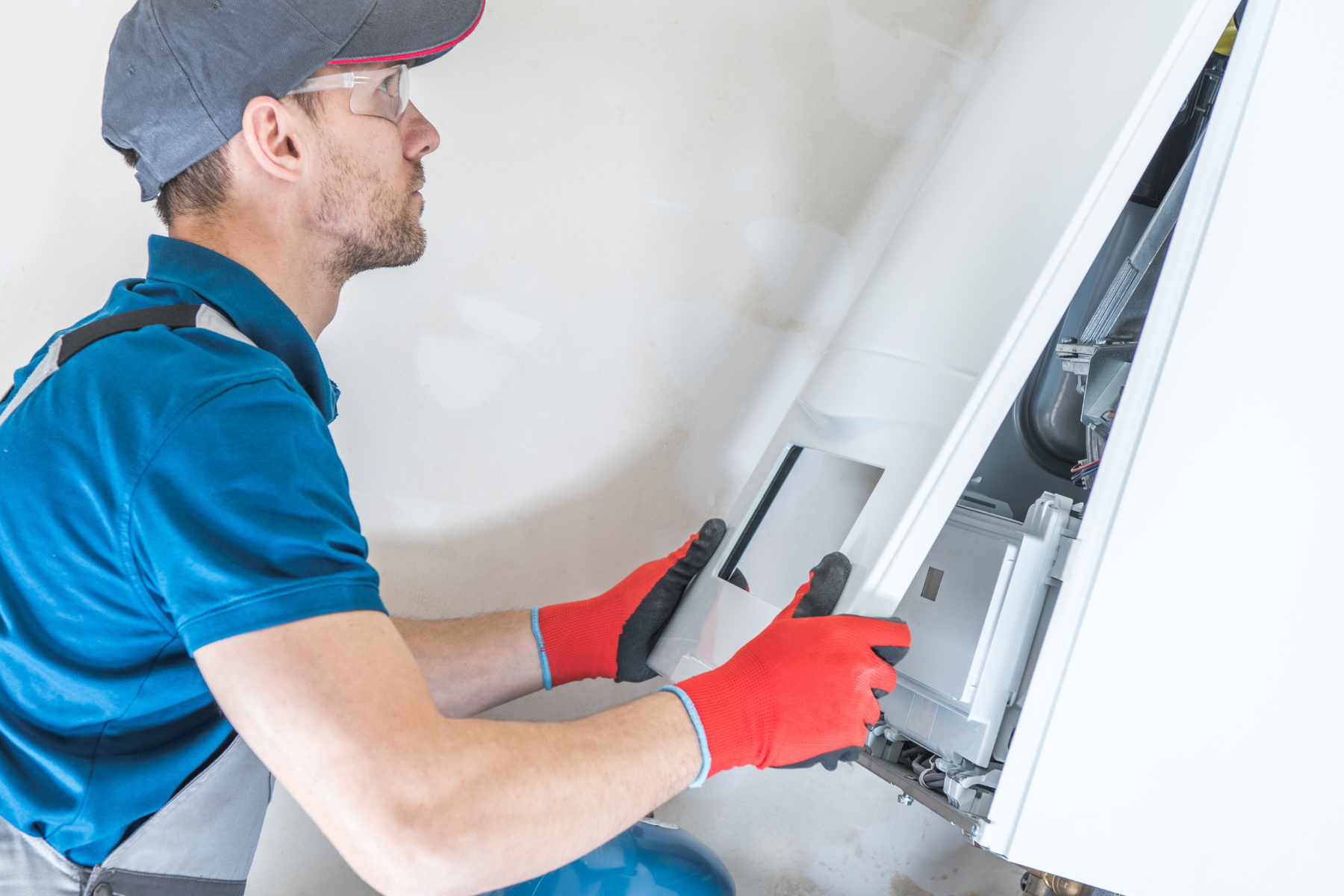
As the temperatures drop in Central Arkansas, it's crucial to ensure that your heating and cooling systems are functioning efficiently to keep your home comfortable. Your furnace plays a vital role in maintaining a warm and cozy environment during the colder months. However, like any other appliance, furnaces are prone to wear and tear, and it's important to be aware of the warning signs that indicate a potential breakdown. Recognizing these signs early on can help you avoid unexpected issues and ensure that your residential HVAC system operates smoothly throughout the season. Inconsistent Heating If you notice that some areas of your home are significantly warmer or cooler than others, it could be a sign of inconsistent heating. This inconsistency may indicate that your furnace is struggling to distribute heat evenly, which could be due to various issues such as clogged air ducts, a malfunctioning thermostat, or a failing blower motor. Odd Noises Unusual sounds coming from your furnace, such as banging, popping, or squealing, are not normal and should not be ignored. These noises could be indicative of mechanical problems within the heating system, such as a worn-out belt, loose components, or even a failing ignition. Quick Cycles or Constant Cycles That Lead to High Energy Bills If your furnace frequently turns on and off in short cycles, known as short cycling, or runs continuously without shutting off, it can lead to increased energy consumption and higher utility bills. This behavior may be caused by issues with the thermostat, clogged filters, or improper airflow, all of which can strain the furnace and lead to premature failure. Yellow Pilot Light & Odd Smells A yellow pilot light on your furnace is a cause for concern as it could indicate the presence of carbon monoxide. Additionally, strange odors emanating from the heating system, such as a burning smell or a musty odor, may signal potential hazards, including gas leaks or overheating components. Constant Repairs Frequent breakdowns and the need for constant repairs are clear indicators that your furnace is struggling to operate efficiently. Continuous issues with the heating system not only lead to inconvenience but also add up in terms of repair costs, making it more cost-effective to consider a replacement or upgrade. Excess Dust Near the Vents If you notice an accumulation of dust and debris around your air vents, it could be a sign that your furnace is not effectively filtering and circulating the air. Poor indoor air quality can result from dirty or clogged filters, negatively impacting your family's health and comfort. Illness & Poor Air Quality Poor indoor air quality caused by a malfunctioning furnace can lead to health problems such as allergies, respiratory issues, and discomfort. Symptoms such as coughing, sneezing, or congestion may indicate that your heating and cooling system is not maintaining adequate air quality. Poor Temperature Control Difficulty in maintaining a consistent and comfortable temperature in your home despite adjusting the thermostat can point to underlying issues with your furnace's performance. Inaccurate temperature control may stem from thermostat malfunctions, sensor problems, or inadequate heat distribution. High Furnace Age An aging furnace is more susceptible to malfunctions and breakdowns. If your heating system is approaching or has exceeded its expected lifespan, it may be prone to frequent issues and reduced efficiency, indicating the need for a new furnace for heating and cooling. Water Leaks or Moisture Problems Water leaks near the furnace or excess moisture in your home can be signs of a malfunctioning HVAC system, potentially leading to damage to the furnace itself and your property. Moisture issues can stem from condensation problems, clogged drain lines, or even a cracked heat exchanger. Remember that regular maintenance will keep your furnace working accurately and will keep your family safe from any hazardous problems or dangerous carbon monoxide leaks. If you notice any of these warning signs, it's essential to address them promptly to prevent further damage and ensure the safety and efficiency of your heating and cooling system. For all your residential HVAC services and furnace maintenance needs in Central Arkansas, B. Dumont Heating and Air is here to help. Contact us today to schedule a maintenance check-up and ensure your furnace is in optimal condition to keep your home warm and comfortable throughout the season. Don't wait until it's too late – let us take care of your heating and cooling needs. Stay warm and cozy this winter with B. Dumont Heating and Air by your side!

As the cooler seasons approach, homeowners and renters are seeking ways to minimize energy costs and maintain a comfortable indoor environment. Instead of making new purchases and investments, many may find the solution right in their own homes! Most ceiling fans are equipped with a reverse switch that alters the direction of the blade rotation—either clockwise or counterclockwise. This switch is typically situated on the fan's base or can be controlled using a remote. The direction in which the blades should rotate depends on the weather outside and the operation of your HVAC system. During the summer, fans should rotate counterclockwise to generate a downdraft, creating a cool breeze. Conversely, in the winter, fans should turn clockwise to produce an updraft, pulling cooler air upwards and pushing warm air downward for everyone in the room to enjoy. Understanding how your fans were designed to function can not only enhance your comfort but also reduce your energy bills and ease the strain on your HVAC system. By making this simple adjustment, you can optimize the efficiency of your residential HVAC unit and enhance the overall comfort of your home. Remember, for any service and maintenance needs for your HVAC system, don't hesitate to contact B. Dumont Heating and Air. Let us help you keep your home comfortable and energy-efficient throughout the year.

As the seasons transition and the weather begins to shift, many homeowners face the annual decision of when to transition from using their air conditioning (AC) system to turning on the heat. This pivotal moment can impact both comfort and energy efficiency, making it essential to understand the factors that influence the switch. In this blog post, we will explore the considerations for determining the optimal time to transition from AC to heat, providing valuable insights for our valued customers at B. Dumont Heating & Air. The decision to switch from AC to heat is influenced by various factors, including outdoor temperature, indoor comfort preferences, and the efficiency of HVAC systems. Generally, the transition occurs as outdoor temperatures begin to drop, and the need for heating to maintain a comfortable indoor environment becomes evident. However, there are several specific indicators that homeowners should consider when contemplating the switch. First and foremost, monitoring outdoor temperatures is a key factor in determining when to make the transition. Once the outdoor temperature consistently falls below the comfort range that can be maintained by the AC alone, it may be time to start using the heating system. This is particularly important for ensuring that indoor comfort is maintained as the weather cools. Another crucial consideration is the overall condition and efficiency of the HVAC system. Conducting regular maintenance and inspections, such as those provided by B. Dumont Heating & Air, can help identify any issues that may affect the smooth transition from AC to heat. Ensuring that the heating system is in optimal working condition before the onset of colder weather can prevent unexpected breakdowns and ensure reliable performance when it is needed most. It’'s essential to take into account individual comfort preferences and the specific heating needs of different areas within the home. Some homeowners may opt to delay the switch to heat by utilizing alternative methods such as space heaters or layered clothing, while others may prioritize early activation of the heating system to maintain a consistent and comfortable indoor environment. At B. Dumont Heating & Air, we understand the significance of this seasonal transition and are committed to supporting our customers in making informed decisions regarding their HVAC systems. Our team of experienced professionals is available to provide guidance, perform thorough system inspections, and offer tailored solutions to ensure that the transition from AC to heat is seamless and efficient. In conclusion, the decision to switch from AC to heat is a crucial aspect of seasonal home maintenance, with implications for both comfort and energy efficiency. By considering factors such as outdoor temperatures, HVAC system conditions, and individual comfort preferences, homeowners can make informed decisions about when to make the transition. At B. Dumont Heating & Air, we are dedicated to assisting our customers in navigating this transition and optimizing their HVAC systems for year-round comfort and satisfaction.
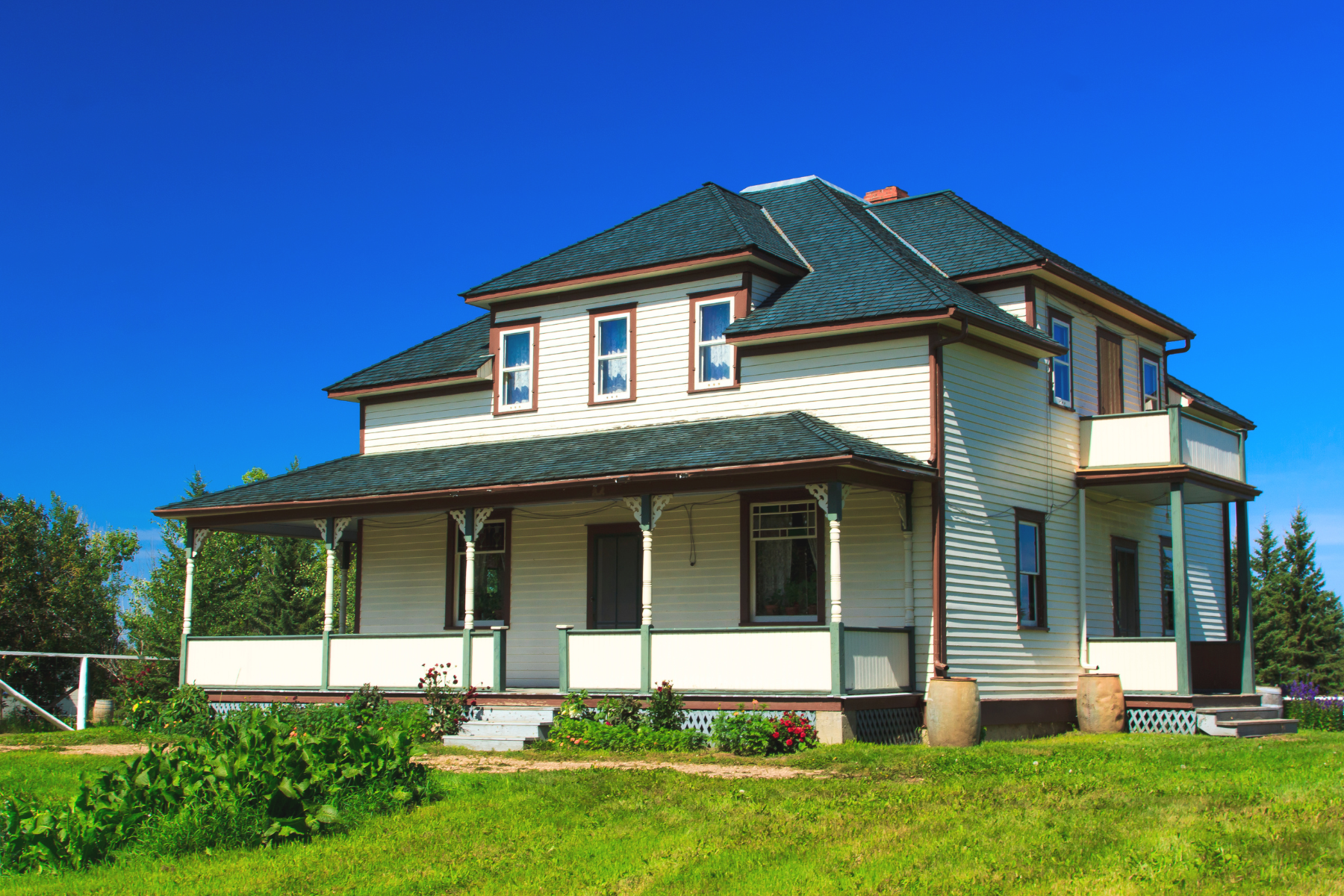
Old houses have an undeniable charm and appeal, but they often come with their own set of challenges. When considering purchasing an older home, one crucial factor to take into account is the condition of its heating, ventilation, and air conditioning (HVAC) system. In this blog, we'll explore the considerations for adding a new HVAC system to an old house, inspecting an existing HVAC system, and what to look for when considering an upgrade. Assessing an Old House for HVAC Installation Old houses may present several challenges when it comes to the efficiency of a new HVAC system. Here are some key considerations: Air Leaks and Insulation Old houses are prone to air leaks due to gaps and cracks resulting from the natural settling of the structure. Proper sealing and insulation are essential to ensure the efficient operation of an HVAC system. House Design The design of an old house, such as high ceilings or crawl spaces, can make it challenging to heat and cool effectively. Additionally, some houses may have limited space for ductwork installation. This is something to note and to contact a professional about to see if there would be sufficient space for duct installation. Ductwork While some old houses may already have ductwork, others may lack the necessary infrastructure for traditional HVAC systems. Consulting with a professional is essential to determine the feasibility of installing ductwork in your home. Existing HVAC Systems in Old Houses If your old house already has an HVAC system in place, here are some factors to consider: System Condition Assess the condition and age of the existing HVAC system. An older system may be less efficient, require more frequent repairs, and result in higher energy bills. If the system is almost 15 years or older it may be time for an update. Ductwork Quality Inspect the ductwork for air leaks, mold, or mildew growth, which can impede the system's performance. Energy Efficiency Check the Seasonal Energy Efficiency Ratio (SEER) rating of the system and its insulation quality to gauge its energy efficiency. Installing a New HVAC System When considering installing a new HVAC system in an old house, here's what you need to keep in mind: Sealing and Insulation Prioritize sealing air leaks and improving insulation to create an optimal environment for the new HVAC system. Unit Selection Choose an HVAC unit or mini-split system that is suitable for the size and layout of your home. Ductwork Considerations Determine if your house has sufficient space and layout for ductwork installation, and consider alternative options if traditional ductwork is not feasible. Ensuring the comfort and efficiency of an old house's HVAC system requires careful assessment and planning. Whether you are considering installing a new HVAC system or evaluating an existing one, professional expertise is invaluable in making informed decisions. For all your HVAC needs, including assessing, upgrading, or installing HVAC systems in old houses, reach out to B. Dumont Heating and Air for expert guidance and service. Book an inspection today to ensure your old house has a modern, efficient HVAC system tailored to its unique needs.
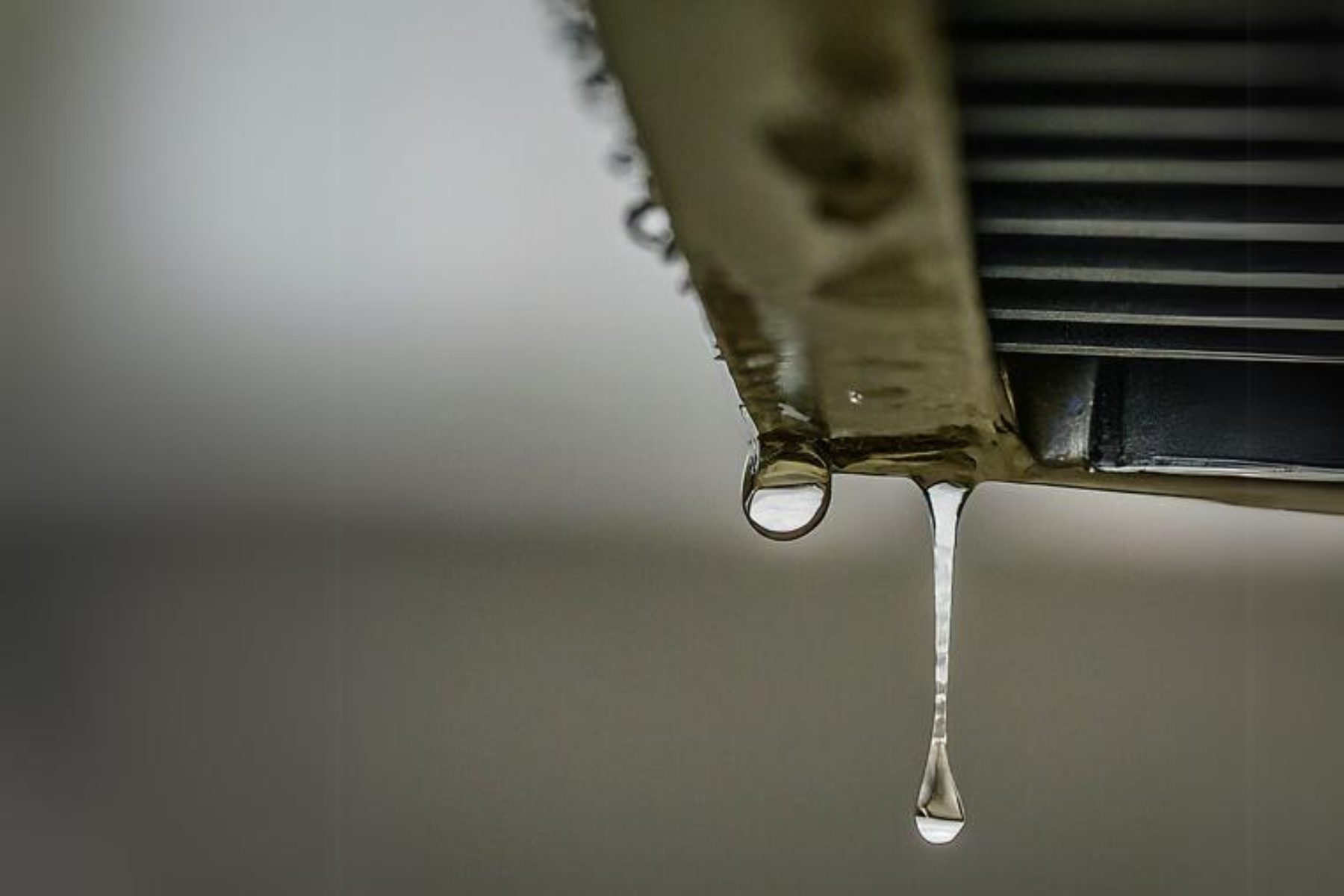
If you've noticed water dripping from your air ducts, you're right to be concerned. This issue can stem from several causes, some of which require immediate attention. Understanding the causes and implementing preventive measures can help you maintain a healthy and efficient HVAC system. The can be many causes for water dripping from your hvac vents or ducts: Condensation buildup: This occurs when warm air comes in contact with a cold surface, leading to condensation. It is more common in humid places. Clogged Condensate Drain Line: Over time, the condensate drain line can become clogged with dirt or debris, leading to water backup in the system. Frozen Evaporator Coil: This can happen due to restricted airflow, low refrigerant levels, or other issues. Improper Installation: If the HVAC system wasn't installed correctly, it can lead to various issues, including water leakage from the ducts. Refrigerant Leak in the Air Conditioner: A refrigerant leak can cause the evaporator coil to freeze and the excess water to leak from the ducts. Dirty Air Filter: A dirty air filter can restrict airflow and cause the evaporator coil to freeze. Not Enough Insulation: Inadequate insulation can cause condensation to form on the ducts. To prevent water dripping from your air ducts, consider the following preventive measures: Routine maintenance and inspections: Regular inspections and maintenance can help identify and address potential issues before they turn into major problems. Clearing the Condensate Drain Line: Addressing clogged drains promptly is essential to prevent water backup and leakage. Using a water/vinegar solution or seeking professional maintenance assistance can help resolve this issue effectively. Adjusting Humidity Levels: Maintaining optimal humidity levels in your home can help prevent condensation buildup. Changing Air Filters: Regularly changing air filters can prevent restricted airflow caused by dirt, dust and debris, resulting in issues such as frozen coils. Ensuring Proper Insulation Behind Vents: Proper insulation can prevent condensation from forming on your ducts. If insulation is absent or improperly installed from your ducts call a professional to resolve the issue and install proper insulation. Understanding the causes of water dripping from your air ducts and implementing preventive measures is essential for maintaining a functional HVAC system in your home or business. By partnering with reliable professionals in the industry, you can address any issues and ensure the effective operation of your home's heating and cooling systems. If you're experiencing water dripping from your air ducts, it's crucial to take immediate action to prevent further damage. Contact a reputable central air service like B. Dumont Heating and Air to schedule an inspection. Investing in quality HVAC services can help identify and resolve any issues with your system, ensuring its optimal performance and longevity.

